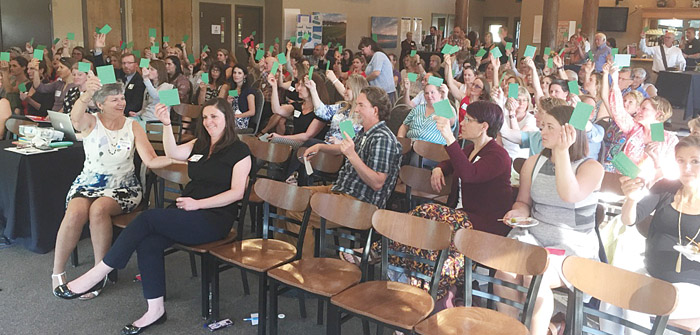(Photo above | Courtesy of United Way of Deschutes County)
It was standing room only as 130 people crowded the View Restaurant at Juniper Golf Club in Redmond recently to support the public launch of a region-wide effort to build more resilience in people and communities in Central Oregon. Passion and energy abounded around a topic foundational to ensuring every individual has the opportunity to thrive.
National research highlights the impact of early experiences on long-term well-being and provides strong and conclusive evidence that intertwines childhood trauma and toxic stress with educational achievement, productivity and engagement, and long-term health. Initiated by United Way, a cross-sector coalition of approximately sixty local organizations has been working for more than a year to lay the foundation for a broad-based initiative to combat the issues of trauma, toxic stress and adverse childhood experiences (ACEs).
ACEs is a term used to describe abuse, violence and distressed family environments of children that diminishes the size, development, and health of a young child’s brain which can cause learning difficulties and emotional/behavioral problems that affect educational success and long-term health outcomes. The more ACEs a person has, the higher the risk of developing chronic illnesses such as heart disease, depression, diabetes, obesity and even lead to shortened life span.
Attendees were able to learn about issues and promising practices through informational stations, small group dialogue and via the keynote presentation The Good, The Bad and the Toxic by Dr. Sarah Enos Watamura, associate professor of psychology at the University of Denver where she directs the Child Health & Development Lab and co-directs the Stress, Early Experience and Development (SEED) Research Center.
The evening culminated with a call to action to those present and the community at large to join the movement to create a more trauma sensitive community and foster resilience in children and adults by raising awareness in all Central Oregon communities, ensuring that our providers have what they need to build resilience in their clients, and adopting proven policies and practices. Most importantly, this was the beginning of an effort to learn together and make a greater impact.
For more information or to get involved call the United Way at 541-389-6507 or www.liveunitedco.org





